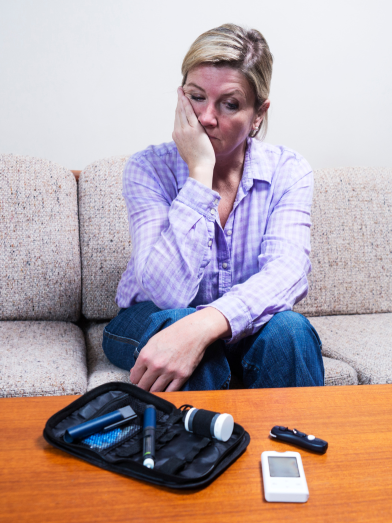The rate of depression in people with diabetes is much higher than in the general population. Women experience depression about twice as often as men, and the risk of depression increases in women with diabetes.
Many hormonal factors may contribute to the increased rate of depression in women:
- Menstrual cycle changes
- Pregnancy
- Miscarriage
- Postpartum period
- Pre-menopause
- Menopause
Many women also face additional stresses, such as responsibilities both at work and home, single parenthood and caring for children and for aging parents.
Previous studies have shown individuals who are insulin-resistant may have higher serotonin concentrations and may be more prone to depression and even suicide. Furthermore, women with diabetes may be more likely to suffer depression because of the clinical diagnosis.
Types of depression
Major depression is characterized by a combination of symptoms that interfere with the ability to work, study, sleep, eat and enjoy once pleasurable activities.
- Dysthymia, a less severe type of depression, involves long-term, chronic symptoms that are not disabling, but keep one from functioning well or feeling good.
- Bipolar disorder (also known as manic-depressive illness) is not nearly as prevalent as other forms of depression.
- Seasonal affective disorder (SAD) is a major depression that occurs in the winter when the amount of sunlight is limited.
- Postpartum depression occurs within four weeks of childbirth. Most new mothers suffer from some form of the "baby blues."
- Psychotic depression is a rare form of depression characterized by delusions or hallucinations, such as believing you are someone you are not and hearing voices.
For more information, visit the National Institute of Mental Health.




